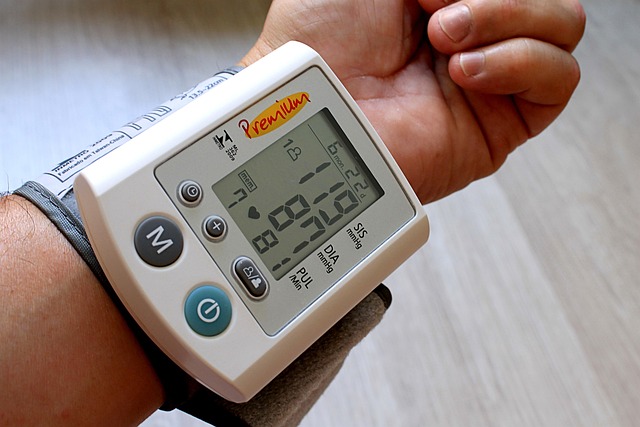Discover Your Ideal Sleep Duration
Getting enough quality sleep is essential for your health, productivity, and overall well-being. But how many hours of sleep do you really need? The answer depends on factors such as your age, daily lifestyle, and activity level.
Our Ideal Sleep Duration Calculator helps you find the recommended sleep range for your age group, adjusts it based on your lifestyle, and even suggests the best bedtime based on your preferred wake-up time. Simply enter your details below and get personalized guidance for better rest and healthier sleep habits.
Your Results
- Recommended range: — hours/night
- Target duration (adjusted): — hours
- Suggested bedtime: —
- Sleep cycles (~90 min): —
💤 How many hours of sleep do you really need?
Sleep is one of the most powerful tools for maintaining good health, productivity, and emotional balance. Yet, many people are unsure about the ideal sleep duration they actually need. While some function well on seven hours, others may require nine to feel fully rested. The truth is that your age, lifestyle, and daily habits all play a crucial role in determining your optimal amount of sleep.
In this article, we’ll explore:
-
The recommended sleep duration by age group
-
The science behind sleep cycles and why they matter
-
The health benefits of getting enough quality rest
-
Practical tips to improve your sleep routine
-
Common myths about sleep you should stop believing
🕒 Recommended sleep duration by age
Health experts, including the National Sleep Foundation, provide general guidelines for the amount of sleep people need at different life stages:
-
Infants (0–1 year): 12–16 hours
-
Toddlers (1–2 years): 11–14 hours
-
Preschool children (3–5 years): 10–13 hours
-
School-age children (6–13 years): 9–11 hours
-
Teenagers (14–17 years): 8–10 hours
-
Young adults and adults (18–64 years): 7–9 hours
-
Older adults (65+ years): 7–8 hours
These ranges are recommendations — your exact ideal sleep duration may vary depending on your activity level, stress, and overall health. That’s why tools like our Ideal Sleep Duration Calculator are so useful: they personalize the advice to your lifestyle.
🌙 The importance of sleep cycles
It’s not just about the number of hours you sleep, but also the quality of your rest. Sleep occurs in cycles, each lasting about 90 minutes, moving through light sleep, deep sleep, and REM (rapid eye movement) stages.
A typical night includes 4–6 cycles. If you wake up in the middle of a cycle, you may feel groggy and unfocused. Waking up at the end of a cycle, on the other hand, often makes you feel refreshed — even if you slept slightly fewer hours.
👉 This is why our calculator also provides an estimate of your sleep cycles and suggests the best bedtime based on your wake-up time.
✅ Health benefits of getting enough sleep
Quality sleep is more than just rest — it’s a biological necessity. Here are some of the main benefits:
-
Improved brain function – Better memory, focus, creativity, and decision-making.
-
Stronger immune system – Adequate sleep helps fight infections and reduce inflammation.
-
Balanced hormones – Regulates appetite, stress response, and energy levels.
-
Emotional stability – Reduces risk of anxiety, depression, and mood swings.
-
Physical recovery – Muscles repair, growth hormones release, and energy stores rebuild.
-
Heart health – Lowers blood pressure and reduces risk of cardiovascular disease.
-
Longevity – Consistently good sleep is linked to a longer and healthier life.
⚡ Common myths about sleep
There are many misconceptions about sleep. Let’s clear up a few:
-
❌ “I can train myself to get by on 4–5 hours.”
→ Chronic sleep deprivation harms your health, even if you feel “used to it.” -
❌ “Catching up on sleep during weekends is enough.”
→ Irregular patterns confuse your body clock. Consistency is key. -
❌ “Older adults need less sleep.”
→ While sleep patterns may change, older adults still benefit from 7–8 hours of quality rest. -
❌ “Alcohol helps you sleep better.”
→ It may make you fall asleep faster, but it disrupts deep sleep stages.
🌟 Tips for better sleep
If you struggle with getting the right amount of rest, try these proven strategies:
-
Stick to a consistent schedule – Go to bed and wake up at the same time every day.
-
Create a bedtime routine – Reading, meditation, or light stretching helps signal your body it’s time to rest.
-
Limit screens before bed – Blue light delays melatonin production, making it harder to fall asleep.
-
Keep your bedroom cool and dark – Ideal temperature: around 18–20°C (65–68°F).
-
Avoid caffeine and heavy meals late in the evening.
-
Exercise regularly – Even 20–30 minutes of daily movement can improve sleep quality.
-
Listen to your body – Use tools like the Ideal Sleep Duration Calculator to personalize your routine.
Your ideal sleep duration isn’t just a number — it’s a balance of hours, cycles, and lifestyle habits. By understanding your body’s needs and making small adjustments, you can improve your health, mood, and performance every single day.
Use our calculator regularly to check your sleep patterns, experiment with different routines, and discover the schedule that makes you feel at your best.
Image(s) used in this article are either AI-generated or sourced from royalty-free platforms like Pixabay or Pexels.
Did you enjoy this article? Buy me a coffee!






